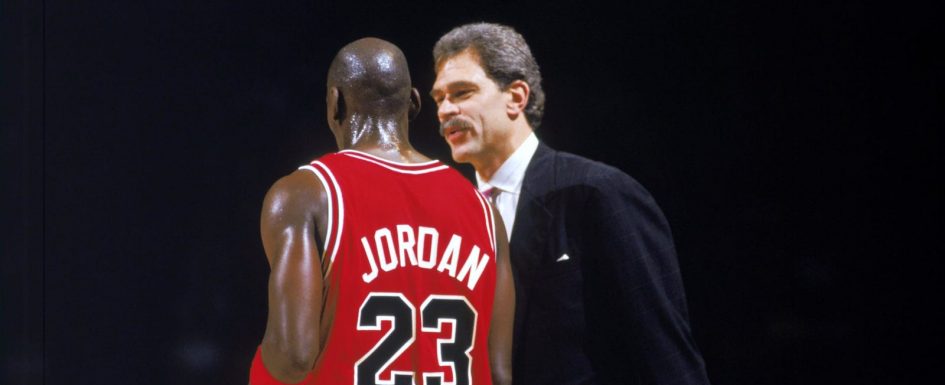No matter what form of motorsports you participate in, there has likely been a time when you sought out advice from someone else about how to go faster. When choosing who to get advice from, we typically reach out to the fastest driver we know.
Of course, this makes sense. When we look for for an A/C repairman, financial advisor, or any other professional service provider, we want to know what their credentials are; we want to know what makes them qualified to help us. From that perspective, “lap times” are the credentials of a performance driver, so we feel confident that the fastest drivers have the right credentials to help us.
In every facet of life, we have a natural tendency to correlate “the ability to perform” with “the ability to teach”. When we see someone doing something well, we assume they will be willing and able to show us how. But while some top performers are happy to share their insights, is their advice necessarily correct? Is it truly insightful? Does it actually help us chart a path forward from where we currently are?
Think about your own experiences in this regard. When you have reached out to people who are great at what they do, whether it is racing, playing a musical instrument, losing weight/getting in shape, or anything else, has the advice and insight always been useful? Has it resulted in lasting improvements for you? Did you come away with any new information?
I am obviously not suggesting that all top performers are lousy at teaching. Some of them are the absolute best sources of information and guidance! So how can we better determine which top drivers can provide us with useful advice?
An even better question is: Does someone have to be a top driver to give us top advice?
Imagine you are a basketball player. Would you rather be coached by Michael Jordan or Phil Jackson?By every single measure, Michael Jordan was the better basketball player. He was faster, could jump higher, could shoot better, was more clutch, won more (as a player), got more MVP awards, etc. Given our tendency to equate success with the ability to teach, we could confidently choose Michael Jordan as our preferred coach.
And that would almost surely be the wrong choice. I am 99.9% certain that choosing Phil Jackson would provide significantly better results.
The reason for this is simple: The skills required to be a top driver and the skills required to be a great coach are are not interdependent. Certainly, some people have both sets of skills (and that’s the ideal combination), but I cannot stress this enough… a great driver is not automatically a great source of information about how to go faster.
Here’s why…
Some (but not all) of the top drivers are “naturals”, and the nuances of going faster came naturally to them, or were learned subconsciously. The trouble this causes is that while these drivers have an amazing natural feel for driving fast, they are usually less likely to be able to describe exactly how they do it. When you ask a natural for guidance, it is pretty typical to end up getting very general or commonly known pieces of advice. “Look ahead”, “use all of the track”, “carry more speed”, etc.
Obviously none of this is bad advice, but it is stuff that most of us have heard before. It leaves us feeling underwhelmed, and thinking “OK, I guess I just need to look ahead further and better“, resulting in no actual insights gained, and no clear path to improvement. Worse yet, it perpetuates the myth that some drivers just “have it” while others don’t. Asking a natural how to drive faster is like asking someone to describe how to walk, or how to breathe. When things come naturally to us, we have a hard time breaking it down into the sub-components that others may struggle with.
The second issue is that even when you find a top level driver who is able to break down and express the finer nuances of how to drive faster, they may not always want to give away all their secrets. And why should they? If they have an edge over other drivers, what incentives do they have to give that edge away? While there are some championship winning drivers who are open with sharing most, if not all of what they know, even at the grassroots levels of motorsports, we see some fast drivers not sharing their videos, their data, their testing results, or not being entirely forthcoming with advice, all so they can maintain their edge.
Again, I want to be clear: I am not advocating against getting advice from faster drivers. I am advocating against getting advice from any faster driver.
The best performers learn from the best observers.With Michael Jordan being a better basketball player than Phil Jackson ever was, what could Michael have possibly learned from Phil? Turns out, a lot. Despite his otherworldly skills, Jordan has gone on records saying he is not sure he would have won as much as he did without Jackson as his coach.
Part of what makes someone a good coach is their ability to observe, ability to dissect a problem, figure out a path to a solution, effectively communicate their ideas, and then motivate people to perform.
Those are the skills we need to look for in anyone we turn to for advice on how to go faster. Notice that nowhere in that list is the ability for the coach to themselves be a star performer. I know, we are all naturally inclined to seek advice from people who are faster than us; those are the flashy “credentials” we are drawn to. But the fact is, some people have an understanding beyond their own speed. Some people, even if they are slower than us, are able to observe the right things, intelligently get to the root of the problem, figure out how to solve it, communicate effectively, and can make you feel armed and motivated to make big improvements.
In my experience, the best driving coaches are those who once struggled at the sport, but achieved success through hard work. Because the sport did not come naturally to them, these drivers are keenly aware of the types of things that they and other drivers struggle with. Because they had to find a way past the problem, these drivers know how to chart a path for improvement, and are aware of the challenges and pitfalls that may come up along the way. Because they likely had to get help from several other people for their own development, these drivers know how to communicate ideas in a variety of ways, and one of those ways might just resonate with you.
Just as there are hundreds of thousands of books on personal finance, there are many different voices and perspectives on how to go faster. In your pursuit for more speed, don’t get caught up in looking for the person with the flashiest credentials. Pay attention to the person who listens to your particular problem and communicates in a way that makes sense to you. Pay attention to the person who is able to demonstrate they can deliver results for others.


1 Comment